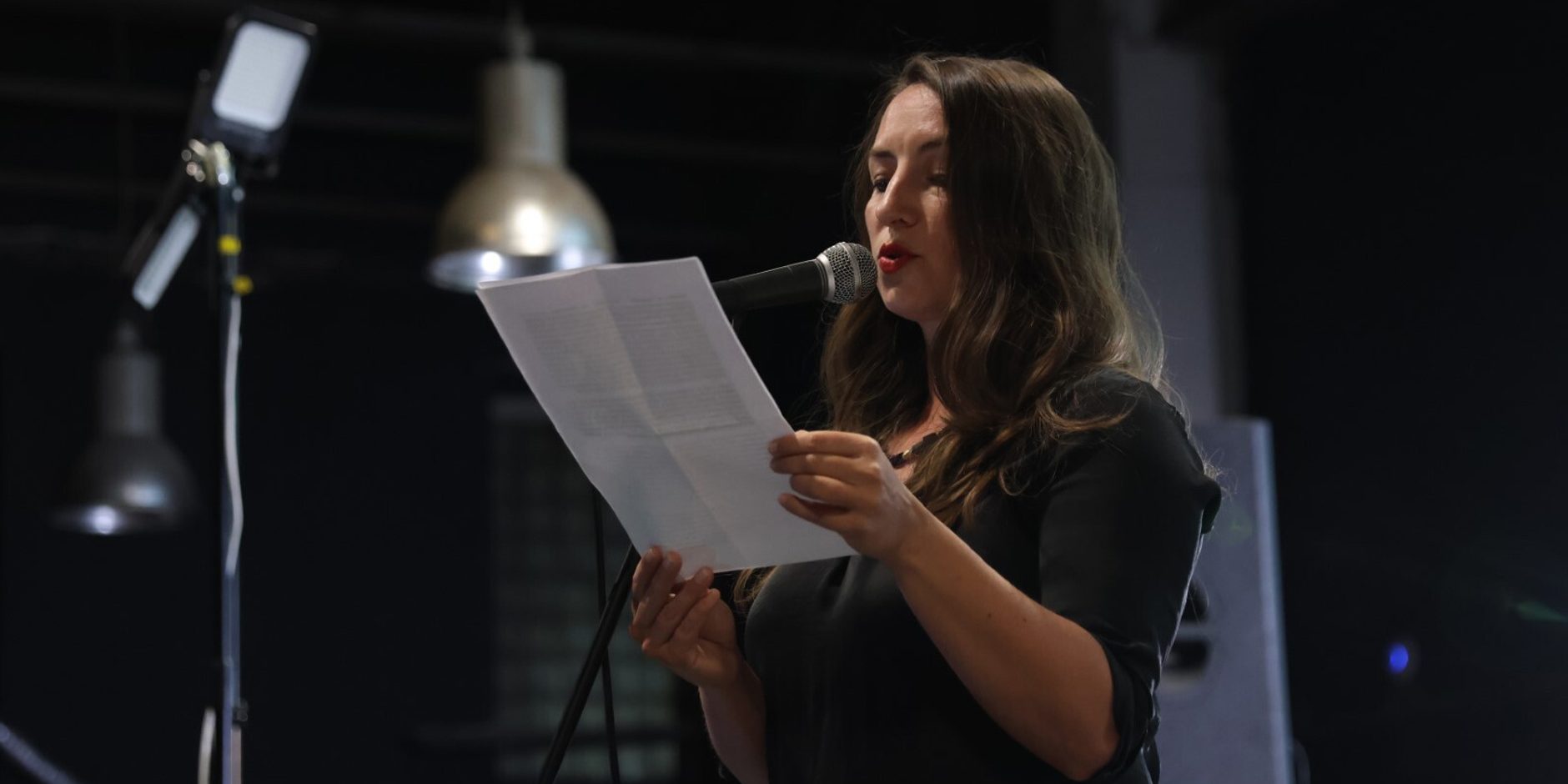Dear guests, dear readers, dear writers and translators, dear organizers of Bookstar, thank you for bestowing me the honor of opening this festival.
I was born in 1981 in Skopje, in what was once Yugoslavia. As one of the smallest countries in the federation, with a language codifed in 1945, I can testify that our generation, and those before it, grew up with the idea that Macedonian litrerature and Macedonian translations were inferior to those of the Serbo-Croatian and the Russian languages. In other words, there was the persistence of the often-heard complaint that our literature is boring and not worthwile reading, that it does not speak to the new generations, and that there is no such thing as a good Macedonian translation. Thus, of course, one should not waste time reading and bying the Macedonian editions of the classic and contemporary world classics. What these generations unfortunately forgot to take into consideration, wallowing in a somewhat pitiful state of self-hatred, was that in the early years of our education we were nurtured by the works of authors such as Olivera Nikolova, Vančo Nikoleski, Vidoe Podgorec and Boško Smakjoski, works which we loved, and works that gently and playfully formed our sense of culture, language and identity. They seemed to forget that in just three or four decades, hundreds of classics had been translated into Macedonian, and that a relatively small group of people tirelessly and devotedly worked towards expanding our world through language and literature: I will here just mention Bogomil Gjuzel, Dragi Mihajlovski and Vlada Urošević, writers and translators who singlehandedly managed to shape the imagination of entire generations.
Meanwhile, after the break-up of Yugoslavia and the independence of Macedonia, another problem came to light that still troubles us: creating and translating into a so-called small language, that is, a language spoken by a relatively small number of people. What does it mean to live in a small language, to grow, develop and communicate in it with the rest of the world? It means you must struggle. It means every writer requires numerous translators; it means that the western-oriented literary market, suffering from a complex of superiority, is not interested in you because it finds you unprofitable. It means it is difficult to survive in your profession, it means you require at least twice the work and twice the funds. It means that almost no one can survive exclusively from writing and/or translating. In a certain way, it means you will always occupy the margins.
What has transpired meanwhile and where are we now, after all these challenges? What satisfies me most is that we no longer hear talk of how Macedonian authors are uninteresting and how they fail to communicate with the issues of today's world. A decade or two ago, with the emergence of writers such as Goce Smilevski and Lidija Dimkovska, a vibrant young literary scene was born, growing stronger with each passing year. This made reading domestic authors popular, and not just within the circles of the literary world; it made domestic literature the talk of the town. To be part of this generation of writers that support and build each other up, to be part of a community of authors that comment on our social-political surrounding, authors that write queer and feminist literature––this for me is personally a great privilege and honor. It is also a privilege to be part of a culture that is proud of its translations, a culture that regardless of the challenges it faces, strives to elevate the quality of translations and to finally recognize the immense role of the translator in society. Hence, I would like to again congratulate Antolog for founding the Dragi award, something I believe is a consequence of our joint efforts, our desire for healthy competition and advancement. And finally, I would like to express how simply happy and content I am that over the last decade or so, from just a few literary festivals, we have reached a stage where the independent literary scene and the publishers have allowed for the rise of so many new festivals, such as this one. We are not the ones who must travel to hear and see the great writers of our times, of our region, of our world: now they come to us.
One more thing: to exist within a small language without a tremendous written tradition can be advantageous. We simply do not carry the burden of century-old literary traditions. We do not carry the burden of comparison, we do not carry the burden of all that has been invented and written before us, so much that there is little left for anything new. In fact, it is we who enjoy the liberty of invention. It is we who invent language and build the foundations of culture, it is we who can imbue language with new meanings. This is where we are now: where no one has been before, the space of an infinite horizon.









